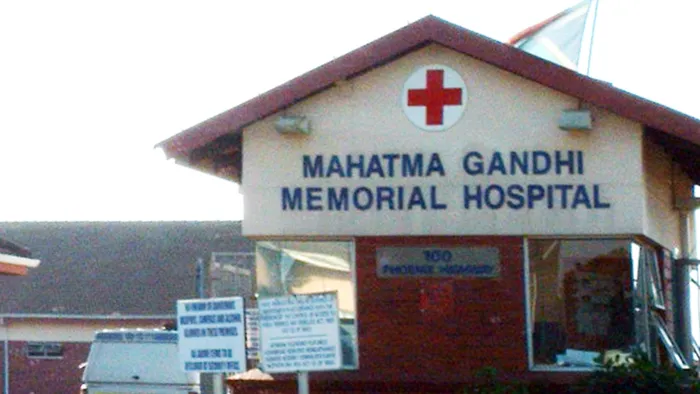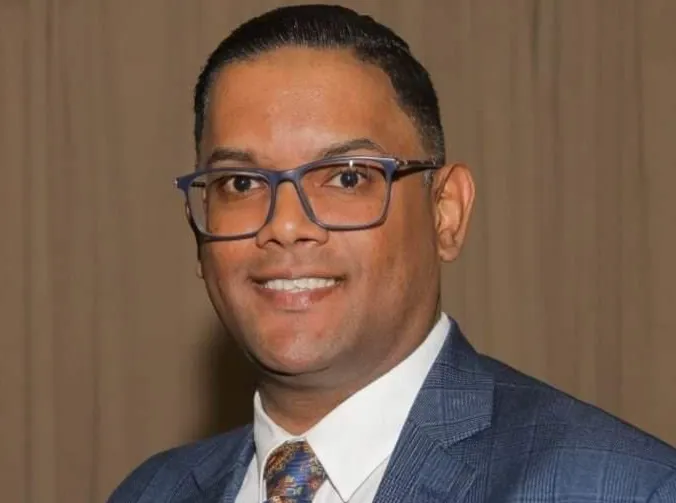Phoenix's healthcare crisis: a community's plea for change
State of neglect

Mahatma Gandhi Memorial Hospital
Image: File
IN THE heart of Phoenix, Durban, a crisis is unfolding that demands immediate attention. The Mahatma Gandhi Memorial Hospital and the Phoenix Community Health Care Centre, once pillars of hope for the people of this community, have descended into a state of neglect so severe that it now threatens the dignity, health, and lives of those they are meant to serve.
For thousands of residents, many of them elderly, frail, and economically vulnerable, these public healthcare facilities represent their only access to medical care.
And yet, what awaits them behind these hospital doors is not healing, but hardship. It is no secret that the physical state of both the Mahatma Gandhi Memorial Hospital and the Phoenix Community Health Care Centre is deplorable. Walls are peeling, sanitation is questionable, and essential medical equipment is either outdated or completely absent.
Many wards lack basic amenities, and waiting areas overflow with frustrated, tired patients forced to sit for hours - sometimes even an entire day - just to be seen by a healthcare provider. These scenes are not isolated incidents, they are the everyday norm in Phoenix.
The tragedy lies in the fact that these facilities were built to uplift the community, not to compound its suffering. The current state of disrepair reflects more than just budgetary constraints - it is a glaring indictment of mismanagement, neglect, and a systemic failure to prioritise public health. One of the most distressing realities facing patients is the chronic shortage of medical supplies and life-saving medications. From insulin and hypertension drugs to basic antibiotics and sterile bandages, stockouts are frequent and prolonged.
For individuals suffering from diabetes, high blood pressure, HIV/AIDS, and other chronic conditions, the consequences of such shortages can be deadly. Patients are often told to return in a week - or even a month - when the next batch of medication might arrive. This is not only unacceptable but unethical. The shortage of qualified medical personnel is another ticking time bomb. Doctors, nurses, and administrative staff are spread dangerously thin, leading to unmanageable workloads and exhaustion.
The result? Appalling delays in patient care, rushed consultations, and a severe decline in the quality of service. Some patients report waiting for over six hours before even being triaged, only to be told to return another day. In the worst cases, patients are turned away altogether. The most heart-breaking aspect of this crisis is the treatment of the elderly and unemployed. Many are forced to make multiple costly trips to the health facilities, only to be dismissed without being seen by a doctor.
For pensioners living on meagre state grants, and for those unemployed due to circumstances beyond their control, this adds an unnecessary layer of suffering to an already dire situation. The bed shortage at both facilities adds another dimension to this tragedy. Emergency cases are often left unattended on gurneys in hallways or even in waiting rooms. Women in labour, patients with broken bones, or individuals in need of urgent surgical attention are all crammed into overcrowded wards or makeshift recovery areas.
In such conditions, patient dignity is routinely compromised. To compound the situation, there are growing concerns about the lack of empathy and compassion among some healthcare workers. While it is important to acknowledge the incredible strain placed on staff, it does not excuse the dismissive or even hostile attitudes patients often encounter. For people who are already vulnerable, being treated with indifference only adds psychological pain to physical ailments.
A call for radical reform:
It is evident that a mere increase in funding or supplies will not suffice. What the Phoenix’s healthcare system needs is a complete and unapologetic overhaul - starting with its management. The leadership at both the Mahatma Gandhi Memorial Hospital and the Phoenix Community Health Care Centre must be held accountable.
This is not the time for political appointments or bureaucratic tokenism. We urgently need a management board that is rooted in the community it serves - composed of local residents with a genuine understanding of the social, economic, and cultural context of Phoenix. These board members must have credible backgrounds in community healthcare, leadership, and organisational management. Additionally, skills in fundraising, marketing, communication, and community development should be prioritized. This type of leadership can help bridge the gap between state resources and community needs, while restoring trust and transparency in the system.
The way forward:
Public healthcare is a basic human right, not a privilege for the few. The situation in Phoenix is not just a local issue - it is a reflection of a broader national crisis that must be addressed with urgency and sincerity. Civil society, local businesses, religious institutions, and NGOs must come together to pressure government stakeholders into taking action. It is only through a united front that we can begin to restore dignity and health to the people of Phoenix.
Moreover, health oversight mechanisms must be implemented to monitor progress, with public reporting channels to ensure accountability. Technology can also play a vital role in improving administration, tracking supplies, and ensuring better patient flow. However, none of this will work without dedicated and compassionate leadership.
The suffering of Phoenix residents cannot be tolerated as an unfortunate norm any longer. The dilapidated state of these two facilities is a stain on our collective conscience. It is time for the community to demand better - not in whispers, but in a unified voice that echoes across municipal, provincial, and national platforms. The health of a nation begins in its most vulnerable communities. Phoenix is calling.

Dr Jonathan Annipen
Image: File
Dr Jonathan Annipen is an IFP councillor and whip, serves as a member of the eThekwini Municipality’s Finance Committee and is actively involved in the Phoenix community.
** The views expressed do not necessarily reflect the views of IOL or Independent Media.
Related Topics:
